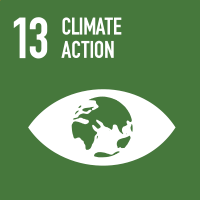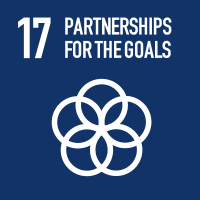Studying at the University of Verona
Here you can find information on the organisational aspects of the Programme, lecture timetables, learning activities and useful contact details for your time at the University, from enrolment to graduation.
Type D and Type F activities
This information is intended exclusively for students already enrolled in this course.If you are a new student interested in enrolling, you can find information about the course of study on the course page:
Laurea magistrale in Governance dell'emergenza - Enrollment from 2025/2026| years | Modules | TAF | Teacher |
|---|---|---|---|
| 1° 2° | Italy in the world (2 cfu) | D |
Giulia Bazzoni
(Coordinator)
|
| years | Modules | TAF | Teacher |
|---|---|---|---|
| 1° 2° | STEEL MILL NLMK VERONA - LOGISTICS E 2023 SUSTAINABILITY REPORT | D | Not yet assigned |
| 1° 2° | INFRASTRUCTURE, LOGISTICS, INDUSTRY, AEROSPACE: STRATEGIES AND ACTIONS IN THE NEW GEOPOLITICS | D | Not yet assigned |
| 1° 2° | PROJECT WORK - AMALGAMA CBRN (FIRST AID AND CCA MED LINE) | F |
Matteo Nicolini
(Coordinator)
|
| 1° 2° | Project work “workshop on emergencies: theory and practice” | F | Not yet assigned |
| years | Modules | TAF | Teacher |
|---|---|---|---|
| 1° 2° | Italy in the world (2 cfu) | D |
Giulia Bazzoni
(Coordinator)
|
| years | Modules | TAF | Teacher |
|---|---|---|---|
| 1° 2° | LAB.: SOCIAL SUSTAINABILITY LEGAL CLINIC | F |
Venera Protopapa
(Coordinator)
|
| years | Modules | TAF | Teacher |
|---|---|---|---|
| 1° 2° | GREEN WELLBEING IN OUR CITIES. IN SEARCH OF DATA, NEEDS AND DESIGN EXPERIMENTS. | D | Not yet assigned |
| 1° 2° | Project work - Emergency management in Italy | F | Not yet assigned |
| years | Modules | TAF | Teacher |
|---|---|---|---|
| 1° 2° | LAB.: SOCIAL SUSTAINABILITY LEGAL CLINIC | F |
Venera Protopapa
(Coordinator)
|
| years | Modules | TAF | Teacher |
|---|---|---|---|
| 1° 2° | GREEN WELLBEING IN OUR CITIES. IN SEARCH OF DATA, NEEDS AND DESIGN EXPERIMENTS. | D | Not yet assigned |
| 1° 2° | Project work - Emergency management in Italy | F | Not yet assigned |
| years | Modules | TAF | Teacher |
|---|---|---|---|
| 1° 2° | Italy in the world (1 cfu) | D | Not yet assigned |
| 1° 2° | Project work - la risposta operativa nella gestione dei processi emergenziali | F | Not yet assigned |
| 1° 2° | Transnational labor law as a spiderweb | D | Not yet assigned |
Comparative constitutional traditions and governance of change (2024/2025)
Teaching code
4S009843
Teacher
Coordinator
Credits
9
Language
Italian
Scientific Disciplinary Sector (SSD)
IUS/21 - COMPARATIVE PUBLIC LAW
Period
1° periodo lezioni - GEM dal Oct 1, 2024 al Dec 20, 2024.
Courses Single
Authorized
Learning objectives
Knowledge and capacity to understand At the end of the course, students should: - have a solid knowledge of both method and fundamentals of comparative legal methodology; - have a good knowledge of the distinction between legal traditions and legal systems; - Understand the lexicon of comparative legal methodology. - have a basic knowledge of the non-legal variables affecting legal change (economics, geography, climate change); - assess how emergencies, risk management/containment, and climate change affect the realm of the law. Knowledge and capacity to apply understanding At the end of the course, students should be able to: - reflect on legal systems/traditions; - use the lexicon of comparative legal methodology - interpret non-legal variables, even ecological ones, affecting legal change; - apply the comparative legal method. Independent judgment At the end of the course, students will acquire be able to: - critically analyze non-Western legal traditions; - critically assess the several issues arising in a globalised world, where economic, legal, climate-change and political factors interact; - to examine public containment. Communication skills At the end of the course, students should be able to: - deliver presentations on legal change and legal system by using specific terms relating to comparative-law topics; - discuss non-Western conceptions of the law; Capacity to learn At the end of the course, students should be able to: - identify and analyze the way in which the theme of constitutional narrative is dealt with in the principal phenomena linked to globalization; - find the sources useful when it comes to developing an interdisciplinary comparative legal study.
Prerequisites and basic notions
Basic knowledge of the English language.
Program
The course will be divided into three parts:
1. Comparative method and constitutional legal traditions. resilience and sustainability of legal pluralism traditions: Common Law; Civil; Law; Mixed Jurisdictions; African Law; Islamic Law; Hindu Law; Hebrew Law; Far Eastern legal systems. Pacific and Russia (SDG 16).
2. Contexts of Legal change (GOAL 17). An introduction to legal geography.
3. The governance of legal change. Colonisation; Numerical comparative law; Inequalities (SDG 10); Terrorisms; Climate change and comparative law (SDG 13).
Bibliography
Didactic methods
Those attending the course will actively participate in it.
During the lectures, students will also discuss topics that have contributed to developing the role of legal traditions around the world .
Lectures will be held in presence.
The video recordings and any supplementary and supporting teaching materials will be made available to students who adhere to the PA 110 e lode protocol, and also, as envisaged by the University guidelines, to students who are in particular situations of fragility, with disabilities or suffering from learning disorders (following notification of and in coordination with the Inclusion Unit) .
Learning assessment procedures
Students that have regularly attended classes will take an oral exam.
During the course, they will be asked to deliver a review of the suggested reading and at least one presentation involving questions, case, and judgements dealt with during the course. The presentation will be assessed in order to determine the final mark.
Non-attending students
Non-attending students are required to take an oral exam. The exam will consist of an oral discussion, aims at verifying the knowledge of the fundamentals of comparative constitutional justice.
Erasmus students
Erasmus students that have regularly attended classes are granted the possibility to write an essay on a topic agreed by the teacher.
Evaluation criteria
Knowledge of the course topics is ascertained through review and presentation; the ability to critically analyze theoretical concepts, through the oral test. The final vote will be expressed out of 30.
Criteria for the composition of the final grade
The final grade is made up based on the verification of the mentioned criteria. In addition to the notions acquired, the grade is given by the ownership of the technical language used, the ability to connect between topics and institutes, and the analytical and argumentative ability. For attending students, active participation in lessons is also taken into account, which provides additional points.
Exam language
Italiano



